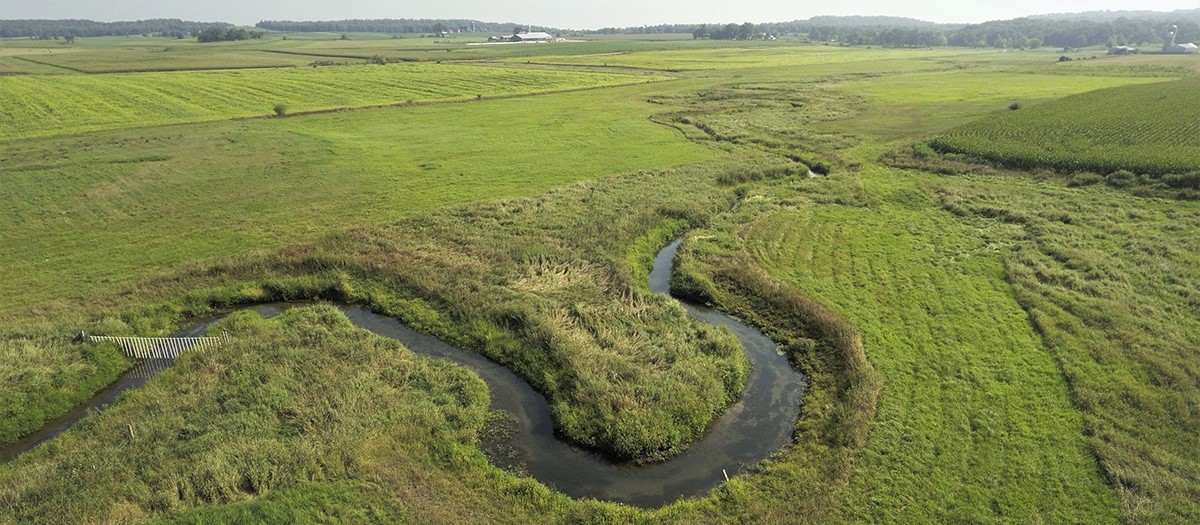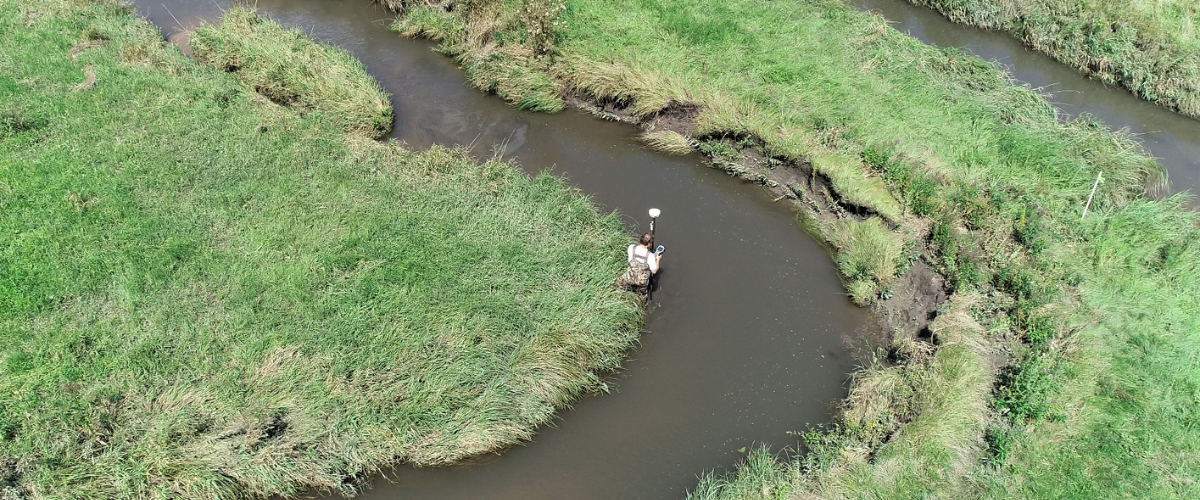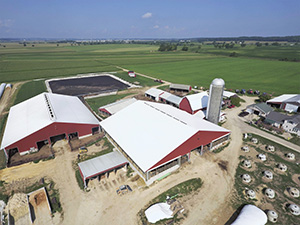Water Quality Trading Flips the Script on Phosphorus Compliance
 Written by: Andrew Skog, PE, MSA Professional Services
Written by: Andrew Skog, PE, MSA Professional Services
![]()
When we speak of engineering, we often refer to the built environment and resolving public infrastructure riddles with sophisticated structures or mechanics. But engineers don’t always work with the structural, nor do solutions always come as linear, design-build equations. Water Quality Trading (WQT) — sometimes called nutrient trading — may be a less physically tangible engineering solution, but the results are highly quantifiable, with metrics that calculate by-the-pound reductions in pollutants and advance the well-being of our environment and natural resources.
In order for the City of Brodhead, Wisconsin, to comply with new, more stringent water quality based effluent limits (WQBELs) for phosphorus, MSA engineers recognized that a traditional structural upgrade was not the answer, nor was mere compliance the ultimate goal.
By implementing a Water Quality Trading program, the municipality’s total phosphorus load is reduced by 1,090 pounds per year as opposed to approximately 190 pounds per year that would have been achieved via a $4.2-million wastewater treatment facility upgrade.
This project is unique in both discipline and methodology. It features a fusion of wastewater, agricultural and water resources engineering, with farmers and landowners holding as much accountability as the engineers in the outcome. Results are both public and private: more than five times the requisite phosphorus reductions and the generation of 390 annual pounds of WQT credits for the City of Brodhead; 1.2 miles of revitalization along Searles Creek, including the stabilization of 62 actively eroding streambanks to reduce sediment loss/phosphorus contributions for two local landowners; and the modernization of manure systems and nutrient management practices for a local dairy farmer.

Because phosphorus is naturally occurring in soil, streambank erosion can cause large quantities of phosphorus-loaded sediment to enter the waterways, ultimately leading to algae bloom and posing a threat to aquatic life. MSA agricultural and water resources engineers implemented a variety of streambank stabilization practices including vegetative reinforced soil slopes (VRSS), root wads and backwater refuges to bolster and protect aquatic life along Searles Creek. Custom new flood gates constructed of vertical hanging PVC pipe were also designed and installed to stop livestock from crossing the stream in certain sensitive areas but allow water and canoeists or kayakers to pass through.
 In tandem with the streambank improvements, MSA worked with a local dairy farmer on a number of impactful and credit-generating projects, including constructing a new 2.2-million-gallon manure tank with over 180 days of storage; installing roof covers and gutters to prevent runoff; adding waste transfer channels to collect runoff and manure from barnyards and safely transport it to the new waste storage facility; and improving nutrient management of crop fields. The results? Essentially no offsite runoff from the farm’s animal production area. This helps protect local watersheds as well as retains manure and nutrients in-house, allowing the manure to be applied to crop fields at the right time and place in a more beneficial manner.
In tandem with the streambank improvements, MSA worked with a local dairy farmer on a number of impactful and credit-generating projects, including constructing a new 2.2-million-gallon manure tank with over 180 days of storage; installing roof covers and gutters to prevent runoff; adding waste transfer channels to collect runoff and manure from barnyards and safely transport it to the new waste storage facility; and improving nutrient management of crop fields. The results? Essentially no offsite runoff from the farm’s animal production area. This helps protect local watersheds as well as retains manure and nutrients in-house, allowing the manure to be applied to crop fields at the right time and place in a more beneficial manner.
Results for the City exceeded expectations, with a total capital investment of just $932,256, as opposed to the $4.2 million anticipated as part of a wastewater treatment facility overhaul. With annual operational costs expected to be approximately $42,000 going forward, the project saves the community of Brodhead approximately $3.8 million in lifecycle costs.
All streambank stabilization work was funded entirely by the City of Brodhead with no cost to the participating landowners, and the dairy farm upgrades were funded, in part, through the Natural Resources Conservation Service Environmental Quality Incentives Program (EQIP) which awards financial assistance to agricultural producers working to address natural resource concerns and deliver environmental benefits.
Water Quality Trading in the City of Brodhead is exceeding expectations and inventively removing more than five times the amount of phosphorus than comparative and significantly more costly wastewater treatment plant upgrades — ultimately offsetting 1,090 pounds of phosphorus as compared to 190 pounds annually. The program not only protects the integrity of the greater Sugar River watershed but stands as a genuine example of public-private alignment and successful community collaboration.
About the Guest Blogger
![]() Andrew Skog, PE, is a senior project engineer at MSA. He has 10 years of professional experience collaborating with Wisconsin municipalities, agricultural producers, private landowners, and regulators to meet water quality goals. He has completed planning and design for wastewater treatment facilities, farms, and streambank stabilization and habitat improvement projects. He has also worked on multiple Adaptive Management and Water Quality Trading projects in Wisconsin. Outside of MSA, Andrew is the proud owner and operator of a 160-acre sheep and goat farm in southern Wisconsin.
Andrew Skog, PE, is a senior project engineer at MSA. He has 10 years of professional experience collaborating with Wisconsin municipalities, agricultural producers, private landowners, and regulators to meet water quality goals. He has completed planning and design for wastewater treatment facilities, farms, and streambank stabilization and habitat improvement projects. He has also worked on multiple Adaptive Management and Water Quality Trading projects in Wisconsin. Outside of MSA, Andrew is the proud owner and operator of a 160-acre sheep and goat farm in southern Wisconsin.
MSA Professional Services, Inc. (MSA) is a 100% employee-owned, full-service multidisciplinary consulting firm serving clients throughout the U.S. Based in 17 offices across Illinois, Iowa, Minnesota and Wisconsin.
